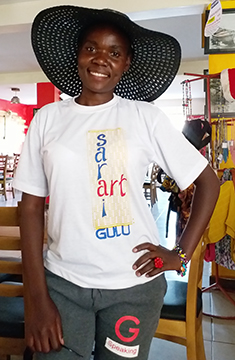Providing Health Care In Uganda
Posted on December 1, 2018, by Loretto Community
By Mary Ann Gleason
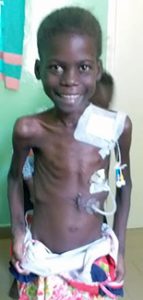
Her name is Juliette. She is a 14-year-old orphan, malnourished secondary to vomiting whatever she eats or drinks because of a stricture in her esophagus. She accidentally swallowed a coin when she was 3 that remained until surgically removed when she was 10. By then, it had caused two fistulas in her right lung, which resulted in a dysfunctional lung. Juliette needs thoracic surgery but is too malnourished. We are hoping the feeding tube she now has in her stomach will result in enough weight gain to allow for the surgery. She has learned to give herself pureed food using a syringe. Juliette was number one in her class before she had to quit school. Her hope is as wide as her smile.
Ethan came to Lacor Hospital when he was 3 years old. He had been born with AIDS and developed an associated cancer called Kaposi’s Sarcoma. When he came, the lymph nodes on his neck were so swollen, he could not bend his neck. Treatment for both the AIDS and the cancer (thanks to the Hilton Fund for Sisters grant we received three years ago, which was renewed recently) now has him smiling and his parents committed to his ongoing treatment. When he sees me, he runs for a hug which I readily give in the name of all of us.
This is to introduce you to two of the children I have been privileged to know, love and care for at St. Mary’s Hospital Lacor (commonly called Lacor) where I have lived and worked for the last five years, relocating from the eastern side of the country where I worked in a health center for the prior six years. Lacor is located in northern Uganda. Founded by the Camboni Sisters/Brothers/Priests in 1959, throughout its history, it has endured a 20-year civil war, the socio-economic sequelae of which remain, and an Ebola crisis, which resulted in the deaths of 13 of the hospital staff.
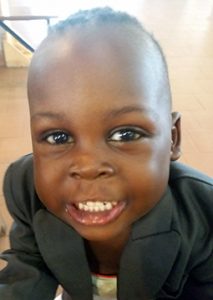
Among those who died was the hospital director Dr. Matthew Lukwiya as he cared for bleeding patients. His encouragement of the staff to commit themselves to caring for those who contracted the disease saved the lives of hundreds and hundreds of villagers from the local communities. He said he would be the last to die, and he was. We are fortunate to have his twin son, who has become a doctor, working with us with the same spirit.
At Lacor, I work full time as a clinical officer and am blessed to care for children, teens and adults who have complications of AIDS (TB, cancer, virological failure, etc.), or other illnesses, like Brenda with a rare seizure disorder, or Scovia, who had acute kidney disease. I also care for HIV-negative children, teens and adults diagnosed with cancers of various kinds, providing appropriate chemotherapy and follow-up care. The latter often can mean accompanying these children, women and men as they live their final days, too soon, and without access to other needed treatment. This is both a privilege and a sorrow.
When a dear 27-year-old friend died of the liver cancer she acquired after contracting Hepatitis B as a child (as did eight of her 11 siblings, from unknown sources), I wrote a bit of a poem to her remaining five siblings: When tomorrow starts without me, don’t think we’re far apart, we will find one another in each of our hearts. This I believe.
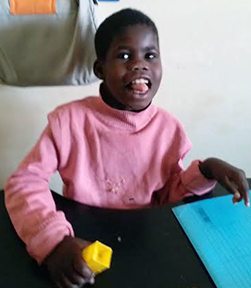
I do this work in partnership with my Ugandan colleagues, both at Lacor and, as needed, in consultation with specialists in Kampala. We work hard, support one another, smile, cry, worry and rejoice depending on the day and the moment.
I live and work primarily with members of the Acholi tribe, although our patients come from 20 districts across the north. The Acholi greeting when we meet one another is “Apwoyo,” which means “thank you.” How lovely to be always grateful for one another.
Uganda has a population approaching 44 million, 70 percent of whom are less than 30 years old and 52 percent are below 15 years of age. This puts enormous pressure on the country’s resources and unemployment rate. The most recent (2016/2017) household survey of the country conducted by the Ugandan government showed that 77.2 percent of the children living in Lacor’s geographic region are enrolled in primary school. (However, it did not calculate how many attend, which is a very different reality.)
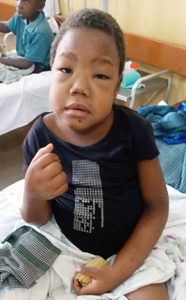
By contrast, only 15.9 percent of those eligible were enrolled in secondary school, and only 13.2 percent of those were girls. Of households surveyed in our geographic region 62.2 percent live by subsistence farming, produce grown primarily for household consumption. Poverty among subsistence farmers grew from 20.3 percent in 2012/2013 (when the last survey was done) to 38.2 percent in the 2016/2017 household survey.
Uganda is primarily a male-dominated society, but village communities function effectively in large part due to the women. Girls and women work very hard from a very young age, collecting water, cooking, caring for the children, doing income-generating work so they can pay for the school fees and other needs of their children.
Too often the children of a woman are abandoned when their father chooses a second or third woman as his partner. The women are stronger of body, spirit, soul than my imagination can comprehend. They are an inspiration to me, and I am privileged to live and work among them.
